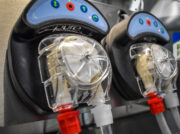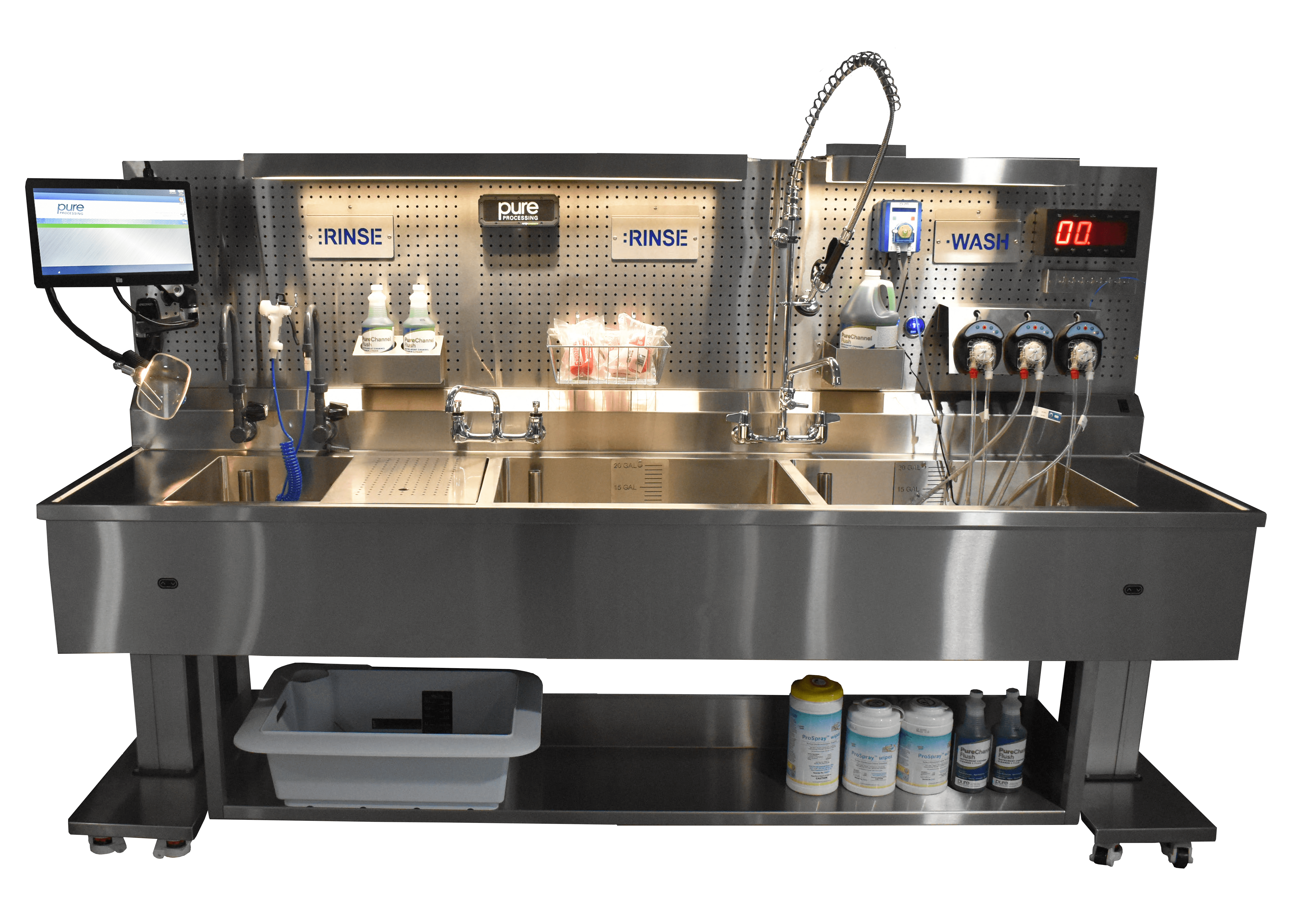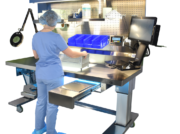
Quantity Over Quality in Sterile Processing Part 1: Cause and Effects
Thank you to our wonderful partner and contributor, a sterile processing manager from Southeastern Pennsylvania, for writing these blogs with us. We are so grateful your time, insight, and dedication to your profession! We couldn’t do it without you.
Do you remember the time when your sterile processing department was overrun with high volume, or had reduced staff? Or perhaps it was both at once! It’s times like those when reprocessing instrument quantity becomes the focus over quality. And ultimately patient safety is the sacrifice. That’s a tradeoff no one wants.
Such a scenario is almost a given when production demand shoots up, and especially during times with low numbers of skilled staff. It is too easy to fall into the trap of the “good enough” mentality. That happens when teams select quantity over quality on number of trays processed per shift. In reality, the priority should be on number of trays processed properly (the quality) per shift. Keeping a focus on proper processing aligns with your goals for patient safety.
The following are priorities to keep in mind when making the shift from a quantity to quality mindset.
Integrating new IFU processes
Instrumentation IFUs do have updates. Unfortunately, they can be easy to overlook during times of high production demand and experienced staff shortages. But placing those updates on a backburner hinders your staff from being efficient, meeting IFUs, and ultimately preventing patient infection.
An added block to integrating new IFU processes are those traditional reprocessing steps from the past. One example is the visual inspection for blood being the main priority. That has led to experienced staff never fully integrating new instrument inspection IFU processes. Other similar considerations are box locks, pitting, alignment, cracks, and sharpness.
Overcome IFU update obstacles with a clear focus on continuing education, routine team IFU updates, and by scheduling in-service training sessions with instrument manufacturers.
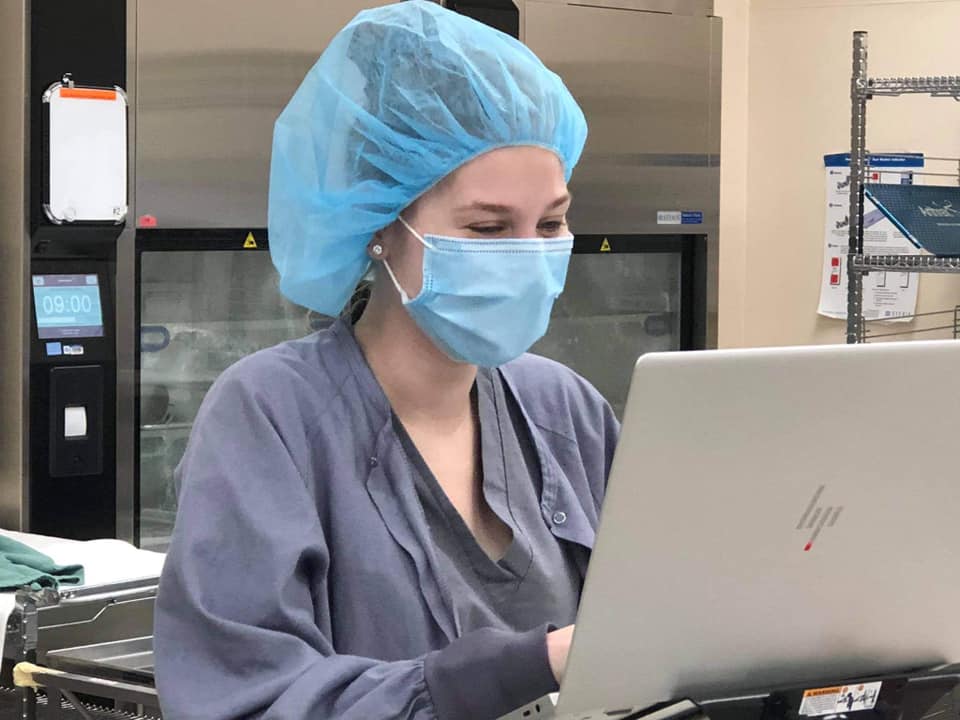 The importance of reference and catalog numbers
The importance of reference and catalog numbers
Many hospitals have continued to process disposable instruments and/or instruments made prior to the concept of having a reference or catalogue number on the actual instrument. That can make it difficult to update reprocessing practices for specific devices.
Without a product number, it can be difficult to convey updates about what is no longer safe or acceptable. Adding to the difficulty is the fact that the instrument cannot be researched, leading to a gap in proper handling and processing practices.
One solution is to identify all instruments without products numbers currently in rotation throughout your department. Regulate their use, replace them with numbered products if you can, and establish a method to identify their updates on a regular basis.
Instrument IFUs increase in complexity
IFUs have increased in variety and specifications. It’s inevitable, really, as patient safety processes evolve and progress. A few notable examples include specific brushes, validating processing equipment, extensive hand wash processes, and enhanced visual inspection. And many more IFUs now recommend the best practice of a final rinse with critical water.
Acknowledging these complexities can help your team stay ahead of the curve. Add this focus to your routine IFU education and manufacturer training plans.
Lack of inventory leads to high caseload
Your department has probably experienced the terminal turnover of sets to get through a caseload. The reason this happens is a lack of inventory, and the sterile processing department bears the brunt of the impact. A lack of inventory can be attributed to a few causes: Budgets, and real-time inventory assessments. Budgets rarely capture the necessary funds to replace or restock instruments or containers, as they are usually part of the OR Budget, and OR staff rarely have a true pulse of instrument usage rates, damage/loss rates, and tend to be always chasing in arrears.
The importance of time studies to IFUs
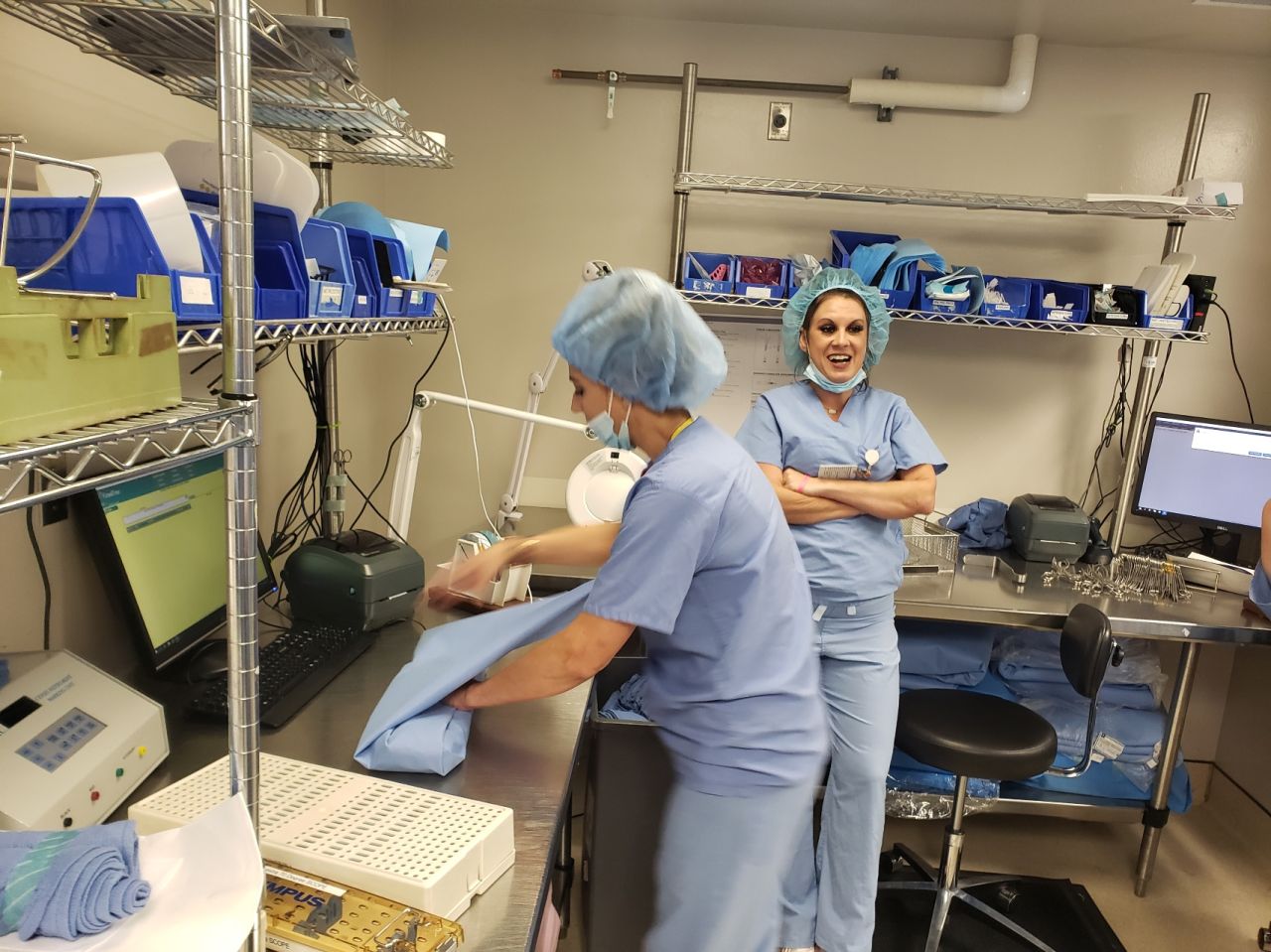 SPD leaders can show industry recommendations to gain additional full time staff support. Time studies regarding the actual safe handling and inspection of instruments with reference to the IFU need to be published to back that need up. Without that information, a question arises: If we could do it with three people before, why do we need six? The fact is, no one wants to admit that processes have not been done correctly, completely, or safely in the past. Quality product was often more a result of luck than best practice or MFC adherence. Most departments don’t have the time, people power, or wherewithal to perform their own holistic time and motion studies to validate. Time and again we return to “what we have been doing is good enough.” Only recently has the “people factor” in the work environment been brought to light on our most important assets, thanks to the AAMI focus on maintaining safe body temperatures, more frequent breaks, and hydration necessities.
SPD leaders can show industry recommendations to gain additional full time staff support. Time studies regarding the actual safe handling and inspection of instruments with reference to the IFU need to be published to back that need up. Without that information, a question arises: If we could do it with three people before, why do we need six? The fact is, no one wants to admit that processes have not been done correctly, completely, or safely in the past. Quality product was often more a result of luck than best practice or MFC adherence. Most departments don’t have the time, people power, or wherewithal to perform their own holistic time and motion studies to validate. Time and again we return to “what we have been doing is good enough.” Only recently has the “people factor” in the work environment been brought to light on our most important assets, thanks to the AAMI focus on maintaining safe body temperatures, more frequent breaks, and hydration necessities.
Say goodbye to the quantity over quality mentality
Quality offers a more effective solution to patient safety than quantity. Even though departments struggle with large caseloads and limited staff, they must follow IFUs to prevent healthcare associated infections. The best way to do that is with consistent education, learning opportunities, and creating a culture around updating processes as IFUs change.
Avoid the “good enough” mentality and shift to a “quality over quantity” mentality to develop your department and your team into an effective sterile processing department for the long term. That will ensure following best reprocessing practices while ultimately improving patient outcomes for your facility
Pure Processing solutions are designed to accommodate any facility’s pre-cleaning footprint, from tiny pre-cleaning corners in an endoscopy lab to a full SPD “dirty side.” Systems and accessories can be selected to optimize the tasks and achieve the workflow volume of each specific department. We also offer continuing education, training and in-service, and valuable resources for SPD staff.
